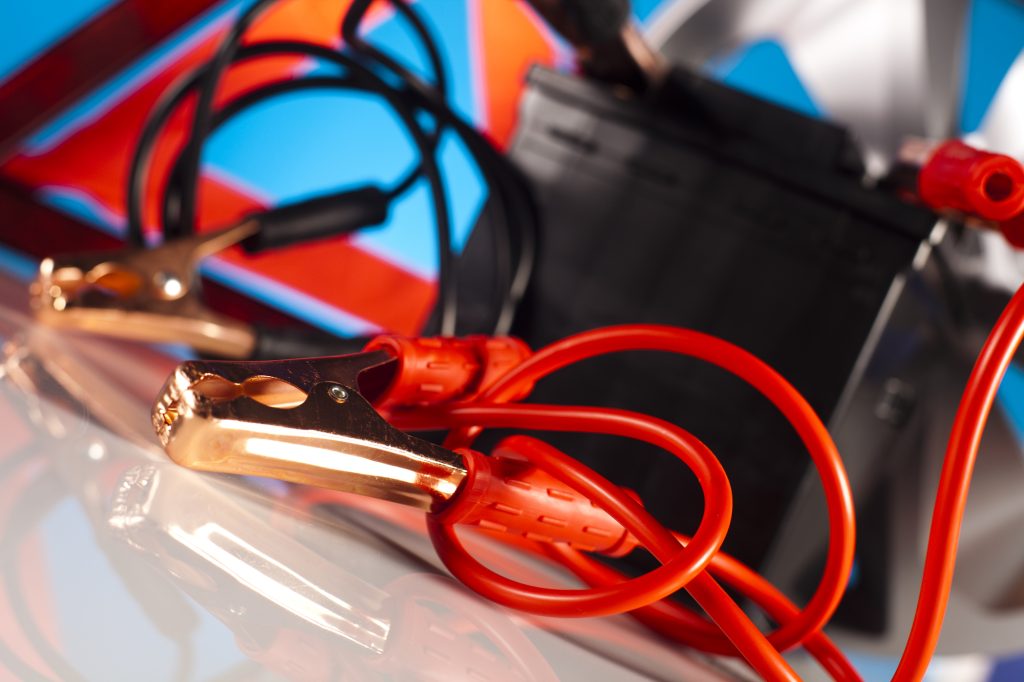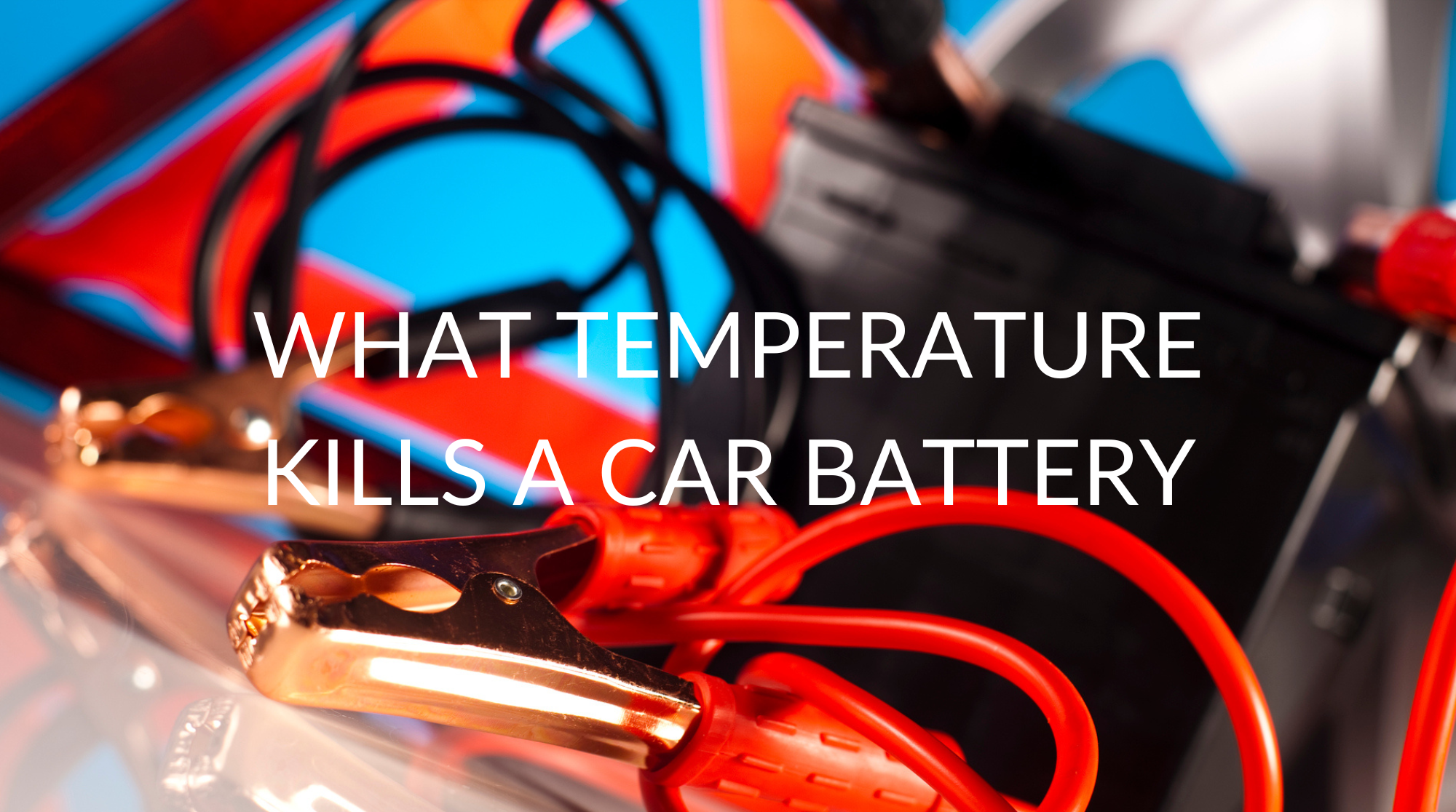If you want to know what temperature kills a car battery, then you’ve found the right article. Batteries are made of chemical components that require a certain temperature range to function properly. If the temperature is too high or too low, it can cause damage to the battery and eventually lead to its death.
Not only will you learn this, but you’ll also learn the effects of heat and cold on a battery and things you can do to minimize the damage caused by extreme weather!
So keep reading to find out everything you need to know!
What Temperature Kills A Car Battery?
Car batteries are designed to function properly in a wide range of temperatures, but extreme heat and cold can hurt the battery’s lifespan. Anything above 140F and below 32F can cause irreversible damage to a car battery that hasn’t been maintained properly.
What Is The Ideal Car Battery Temperature Range?
Ideally, a car battery should operate between 78-81F. However, they can work efficiently between temperatures of 32F and 104F. This is the most efficient range for charging and discharging energy.
Can Heat Kill A Car Battery?
High temperatures can cause irreversible damage to a car battery, reducing its lifespan and putting the vehicle at risk of sudden failure. Heat accelerates any chemical reactions taking place inside the battery, leading to increased levels of charge and discharge cycles that wear it down faster than normal.
It also causes the water in the electrolyte to evaporate more quickly, leaving behind a more concentrated mix of sulfuric acid that can corrode the internal components.

How Does Hot Weather Affect Car Batteries?
When asking yourself what temperature kills a car battery, it’s important to know the effect hot weather can have! Well, hot weather can affect a car battery in several ways, and none of them for the better. So if your car battery is exposed to heat, you can expect any or all of the following to happen.
Evaporation
Evaporation of the battery’s electrolytes is one of the biggest issues caused by hot weather. Heat causes the water in the electrolyte solution to evaporate more quickly, leaving behind a higher concentration of sulfuric acid and other materials that can corrode the internal components. This weakens the electrical contacts and reduces their ability to hold and transmit power.
Overcharging
Heat also affects the battery’s ability to handle a charge. When temperatures exceed normal levels, the battery is more likely to become overcharged and potentially damaged. This can be caused by leaving the vehicle in direct sunlight for long periods, for example.
Corrosion
The high temperatures inside the battery also cause it to corrode more quickly, reducing its lifespan and performance. Corrosion can be caused by the increased concentration of chemicals in the electrolyte solution, as well as by any buildup of sulfate crystals that form near the positive or negative terminals.
Does Heat Make Car Batteries Die Faster?
Yes, heat can make car batteries die faster. High temperatures cause the internal components of the battery to corrode more quickly and reduce its ability to hold and transmit power.
How Long Do Batteries Last In Hot Climates?
If you’re wondering what temperature kills a car battery, then as a rule of thumb, for every 15 degrees over 77 degrees Fahrenheit, you can expect your car’s battery life to be cut in half. Hot to extreme heat will give your battery a lifespan of just 30-40 months.
When the temperature is even more extreme, it will kill the battery much faster.
What’s The Best Car Battery For Hot Weather
If you live in a hot climate, an AGM battery may be a better option than a standard lead-acid battery. AGM batteries are designed to function in high temperatures and have a much longer lifespan in extreme weather conditions. They also require less maintenance and provide more efficient power delivery. Additionally, the sealed design of AGM batteries means they are not as susceptible to corrosion caused by high temperatures.
What Kills Car Batteries Heat Or Cold?
Both heat and cold can kill car batteries. However, high temperatures cause the internal components to corrode more quickly, while extreme cold weather will only reduce your battery’s ability to hold and transmit power.
Will Cold Weather Ruin A Battery?
Yes, cold weather can ruin a battery. When temperatures drop below freezing, it becomes harder for the battery to hold and transmit power efficiently. This can cause it to become weakened or even permanently damaged.
Can Cold Kill A Car Battery?
Cold temperatures can also shorten the lifespan of a car battery by causing it to lose its charge faster than normal. As the temperature drops, so does the amount of electricity produced and stored in the battery. This reduces its
How Does Cold Weather Affect Car Batteries?
There are several different ways cold weather is going to affect your car’s battery. The main things that will happen are:
Reduced Capacity
Cold weather can reduce the amount of electricity your battery can hold and transmit. This means that when temperatures drop, so will the number of starts and recharges your battery can handle before needing to be replaced.
In fact, at just 32 degrees, your battery capacity will be 20 percent less. At -22 degrees the capacity will be cut in half!
Thicker Engine Oil
Cold weather makes engine oil thicker and harder to move around the system. This can cause extra strain on the battery, reducing its life span and performance.
Reduced Recharge Rate
Cold weather reduces the recharge rate of a battery, meaning it takes longer for the battery to regain its full capacity after being used or recharged. This makes it more difficult to start a car in cold weather and can lead to the battery becoming overcharged.
Load Increases
Cold weather also increases the amount of load on your car’s battery, meaning it has to work harder than normal to start.
What’s The Best Car Battery For Cold Weather?
Just like hot weather, AGM batteries are the best option for cold weather. They are designed to work in extreme temperatures and have a much longer lifespan than standard lead-acid batteries. Additionally, AGM batteries require less maintenance and provide more efficient power delivery.
That said, it’s important to keep your car’s battery in good condition, no matter what the weather.
How Can You Prolong Your Car Batteries Life In Extreme Weather?
Now you know what temperature kills a car battery, it doesn’t mean you need to give up on it. Here are several things you can do to improve its lifespan!
Keep it clean
Dirt and debris can corrode the surface of the battery, causing it to degrade faster. Make sure to keep your car’s battery clean and free of dirt, dust, and other contaminants.
Check the Liquid Levels
Most batteries need to be topped up with water to function properly. So check the levels regularly and top off with distilled water when necessary.
Charge Regularly
Make sure to charge your battery at least once a month. This will help ensure that the battery has enough juice to power your car in extreme temperatures.
Keep It Warm
Extreme cold weather can reduce the charge of your battery and cause it to become damaged. If you can, keep your car in a heated garage or an area that is insulated from the elements.
Turn Everything Off When Parked
When your car is parked, make sure to turn off all lights and other electrical components. This will help reduce the load on your battery and extend its life.
These tips can help make sure your car’s battery is in good shape and able to handle extreme temperatures. Taking these precautions will ensure that your car runs smoothly in any weather!
When Should You Replace A Car Battery
Sometimes, there’s simply nothing more you can do, and it’s just time to replace your battery, so if you notice any of the following! Then it’s time to consider purchasing a new one.
The Battery Is More Than Four Years Old
Batteries typically last between three to five years, so if your battery is older than four years, then it may be time to replace it.
The Battery Is Corroded Or Damaged
If you notice corrosion on the terminals or any signs of damage on the exterior of the battery, then chances are it needs replacing.
It Struggles To Hold A Charge
If your battery is having trouble holding a charge, then it could be due to a number of issues and may need replacing.
It’s Not Starting The Car
If your car is having trouble starting, then it could be due to a faulty battery. In this case, you’ll need to replace the battery with a new one before you can get your car running again.
It’s Making Strange Noises Or Smells
If you notice any strange noises or smells coming from your car battery, then it’s likely time to replace it.
Headlights Appear Dimmer
If the headlights appear dimmer than usual, then the battery could be losing its charge and needs replacing.
Accessories In The Car Are Failing
Just like with the headlights of your car, if the accessories are failing, then it could be due to a low battery charge. In this case, you’ll need to replace the battery before anything else.
The Check Battery Light Is On
When the check battery light is on, it could be another sign that the battery needs replacing or that the charging system is no longer working properly.
Frequent Temperature Changes In The Area
If you live in an area with frequent temperature changes, then this can take a toll on your battery and cause it to wear out faster. In this case, it’s best to replace the battery sooner rather than later or risk being caught with a dead battery.
Conclusion
Knowing what temperature kills car batteries and when to replace them can help you stay ahead of any potential problems. Take note of these tips and check your battery regularly to make sure it is in good condition! Taking the necessary precautions will ensure that your car runs smoothly in any weather.

